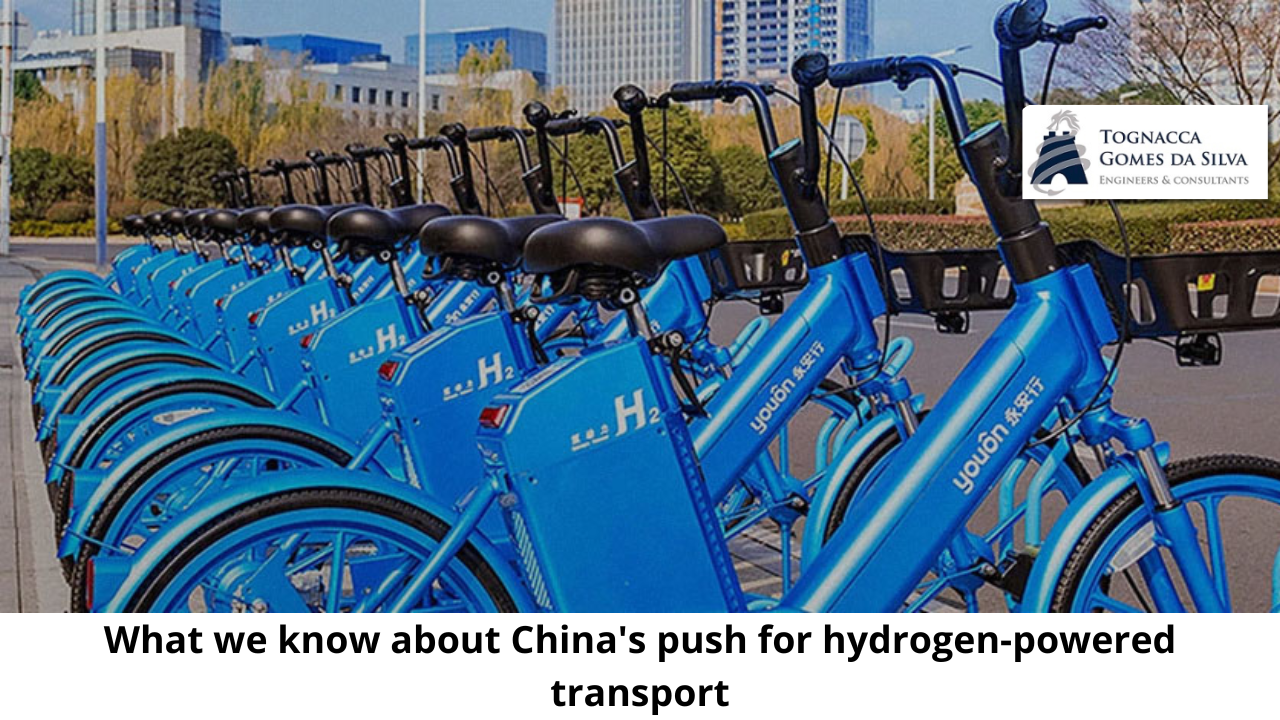Chances are you’ve heard of hydrogen-powered vehicles, but never seen one. There are more than 18,000 in the US, almost exclusively in California. From the outside, they look like traditional vehicles, but they are powered by electricity generated by a hydrogen fuel cell, which makes them much cleaner and more sustainable.
So when I heard that in some parts of China, companies are putting hydrogen-powered bikes on the streets for anyone to ride, it was a real “the future is here” moment for me. I researched the subject further and wrote an article.
These bikes have hydrogen tanks the size of water bottles, which can make them easier to use than regular bikes, although the tanks have to be changed every 40 miles (approx. 64 km). However, they haven’t exactly received rosy reviews. A cyclist in Shanghai told me that he didn’t feel an increase in speed from hydrogen and that the user experience was hampered by hardware and software design flaws. Many people on social media agree with him.
Youon, one of China’s largest bike-sharing organizations, has thrown its support behind hydrogen energy. It has placed thousands of hydrogen-powered bicycles in major cities such as Beijing and Shanghai in hopes of starting a trend.
However, for clean energy experts, it’s difficult to understand why these hydrogen bikes are promoted in the first place: they are less efficient than regular electric bikes and won’t make much economic sense in the long term.
It’s not just one company that follows this path. The collective appetite for hydrogen bikes has been much greater than I expected. By my own count, Youon has half a dozen competitors in the industry, and several cities have adopted the idea. While the future of hydrogen-powered bikeshare is uncertain, its expansion represents a much larger trend happening in China: exploring how hydrogen can be used in transportation.
It’s no secret that the country has already become a world leader in the production of affordable and powerful electric vehicles (EVs), but the Chinese government and businesses aren’t stopping there. In recent years, a significant number of local policies have been established to subsidize the production of hydrogen vehicles, waive toll fees, and build more refueling stations. Currently, China has around 21,000 hydrogen vehicles in circulation and more than 400 stations that supply the material.
This effort by China on hydrogen is truly worth checking out: Although using gas as fuel for vehicles does not generate carbon emissions, it is not the same reality to actually produce hydrogen. In China, the vast majority of material comes from fossil fuels, which cost much less than producing it with water and renewable energy. (To distinguish “gray,” “blue,” and “green” hydrogen, read this article by my colleague Casey Crownhart.)
The sad truth is that China will depend on coal and natural gas to produce hydrogen for some time. The fact that gas is a byproduct of coal processing explains why many Chinese cities with abundant coal resources are also on the frontier of the hydrogen sector. For them, the economic argument for the material may outweigh the environmental costs, and as a result, although hydrogen vehicles create a path for the transportation system to decarbonize further in the future, they are doing very little to combat the change. climate at present.
The same problem applies to electric transport in China: Yes, electricity is cleaner than gasoline as a fuel for cars, but most of China’s electricity still comes from fossil fuels, so how much cleaner is it actually? ?
Regardless, hydrogen vehicle organizations need to answer an additional question: If China is already great at making batteries for electric models, why should it bother spending time or resources on hydrogen vehicles?
For now, Chinese companies have come up with a good response, and it’s not about bicycles. These are large trucks.
“Hydrogen passenger vehicles are kind of a dead end here… I think for fleet vehicles, trucks, long-haul freight, hydrogen is competitive with long-range electric models. Maybe it’s a gamble?” says David Fishman, senior manager at Lantau Group, an energy consulting firm.
If you think about it, cargo trucks run into some of today’s biggest limitations of EVs, which are having to travel ultra-long distances while refueling quickly to save time. At the same time, the limitations of hydrogen models, such as the lack of refueling stations and higher production costs, make them much better suited to commercial fleets than individual car buyers.
As a result, Chinese hydrogen truck companies are confident, says Fishman. If hydrogen does become a next-generation mainstream fuel, it will likely start with trucks in the eastern country.
( fonte: MIT Technology Review )



